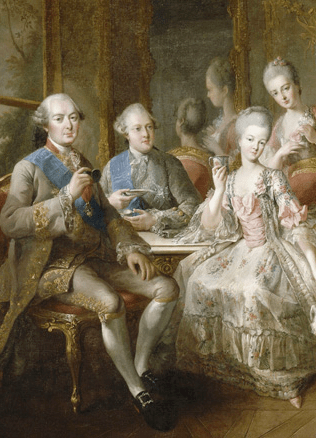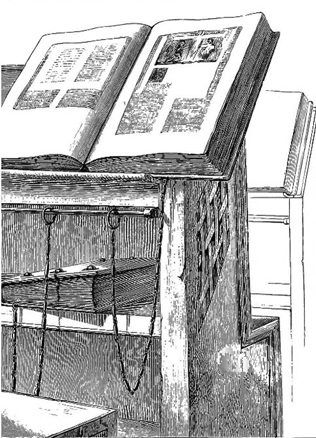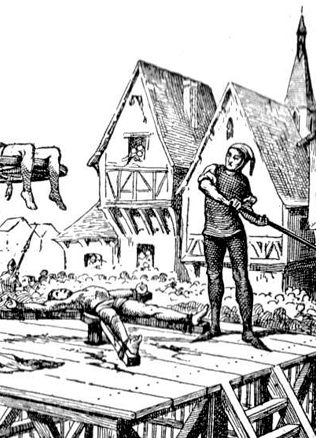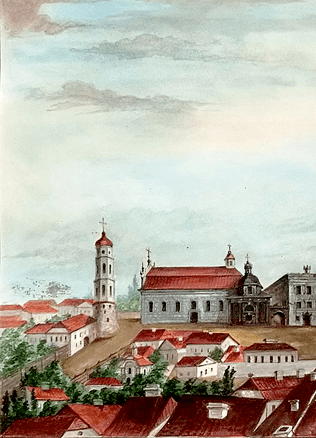The Alcohol Economy
Alcohol has been known in Lithuania, like all over the world, since ancient times (most often mead and beer, and approximately at the end of the 15th century vodka was introduced). Definite written data about its production and trade has been known since the end of the 14th century when the chancellery of the Grand Duke of Lithuania started to be formed and the first privileges related to alcohol were recorded. At that time the ruler had the exclusive right of granting privileges, which he retained in later years too, to allow inns to be established in the church and private holdings and produce alcoholic drinks and trade in them there. The inns were usually located on the roadsides where a traveller could have a meal, spend the night and feed the horses. Magistracies of self-governing towns and owners of small towns allowed the inns, which functioned in the cities and larger towns, to be established from the 16th century, but attempts were also made to obtain the privilege of the ruler. To provide a large number of Vilnius inns (many of them functioned within the borders of the city, their number amounted to 55 in 1636) and pubs (they were in the suburbs near the roads) with beer and vodka, on 9 December 1552, the malt workshop was established. It provided alcohol breweries with malt, which, according to the historian Mindaugas Paknys, in 1636 were equipped in more than half the houses in the centre of the town.
Do You Know?
The 16th century inns traded mainly in beer, which was often drunk at breakfast (warmed up during the wintertime) or eaten instead of soup during that period.
Illegal inns nearly caused famine
The Ruler’s right to establish inns and to block the way to illegal (the so-called pakampės (by-corner) ones was legalised in the Lithuanian Statutes. From the middle of the 16th century the number of inns was growing rapidly, large amounts of corn were used to produce alcohol, which created problems in the year of poor crop. Therefore in 1553 the Ruler issued the decree that seeing a shortage of food this year of poor crop and great harm because vodka is brewed from malt, which needs plenty of corn and does general harm, seeking to forestall the events of impoverishing the poor people whose numbers are really large and famine and poverty, which are widespread in many places (…) we decided (…) that nobody, residing in the city of Vilnius )…) should brew vodka and trade in it (…) only those chosen by the prefect and burgomasters have to brew that vodka but not from corn but from beer and honey yeast, and from wine and sediments of other foreign drinks.
The provisions of the Regulations of the 1557 Volok Reform specify that illegal inns incur losses not only on our grace the Ruler but also on the entire state, food is becoming more expensive and the poor are growing poorer. Fight was waged against illegal inns not only because they reduced the income of small owners. As is indicated in the Third Statute of Lithuania in 1588, murders, thefts, fights and many other disturbances take place in those secret pubs.
Inns traded mainly in beer, which was often drunk at breakfast (warmed up during the wintertime) and used instead of soup during that period. Alongside beer one could also get vodka, and sometimes mead too. The figures testify to a spread of inns in some of the towns: in 1563 there were 37 courtyards in Rietavas and 30 of them traded in beer, 12 traded in vodka, 4 – in mead, that is, over 81 per cent of all the families traded in alcohol. Meantime in Tytuvėnai, in 1581, there were as much as 97 per cent of them. (32 out of 33 courtyards traded in beer, 15 – in alcohol).
In the first half of the 17th century a similar situation formed in self-governing towns, e.g., in 1638–1640 there were 139 dwelling houses in Joniškis in which there were 148 (!) beer, 27 vodka and 4 mead inns.
Whereas in 1639, in Virbalis, in 463 built up plots of land there were 94 beer and 74 vodka “institutions”. At least until the middle of the 18th century there were mead inns in Vilnius, which traded in mead. According to the data presented by the historian Antanas Tyla, in the first half of the 17th century revenues to the Treasury of the state from beverages constituted from 1.6 per cent (in 1629, due to poor crops, famine and plaque; in 1600. – 13.8 per cent) to 18.1 per cent (in 1649 a double tax on beverages was imposed).
Trouble caused by Vilnius drunkards and their vows not to drink
In Vilnius, from the middle of the 15th century, before guilds became established (approximately at the end of the 16th century), the so-called mead fraternities were popular, which united most often the representatives of one craft, but others could attend them too. They were granted privileges of the Ruler to produce mead at least 6 times per year without being taxed and treat themselves to it for three days. However, the seniors of these fraternities had to see to it that brothers who were enrolled in the fraternity and the guests who came to the house of the fraternity should sit very respectfully, should not speak improperly among themselves, should not get on the table and should not spill mead of the fraternity, should drink obediently and with moderation, should not do any harm. Such instructions were necessary because court books of that time contain many entries about the troubles caused by excess drinking. For example, in January 1552, in Kaunas, Bernot and his wife reported on helmsman [a river transport worker] Motiejus that he squandered on drink 12 grosz that he had borrowed. And, besides, Stanisław reported on Maciej that the latter, when summoned to court, jumped at him with a long knife when he refused to be taken to court. (…). And so, because of his fault and disobedience I let him to be taken to prison.
The entry made in Vilnius in 1562 wrote that Vilnius resident Walentinowa Pawlowiczowa said that Andrzej Bażonowicz, being drunk, beat his wife, his sister and the children without any reason, and because of this beating she feared for her health.
There were people who understood the harm done by drinking in time and assumed certain commitments. In 1551, a resident of Kaunas helmsman Piotr Butkewicz stated in court the following: Piotr also undertakes, in the course of these two years, not to drink any beer, Lithuanian or German, any mead, vodka, or any other drink, with the exception of water or something diluted, besides, not to play cards, dices or balls, draughts, and any other indecent game. If he failed to fulfil these obligations, he undertakes to give the Town Hall 3 000 bricks and to give two stones (16 kg each) of wax to the Church of St. Peter. On 13 January 1563, a resident of Vilnius Bohdan Turk voluntarily declared and undertook as of that day not to drink anything, that is, wine, mead, beer, vodka and nothing else except water and bread cider. If anybody sees him drinking before the time indicated, he himself voluntarily undertakes to pay 20 threescore grosz to Vilnius palatine.
Vilnius inns were located on the ground floor of a house, and there was a signboard on the door. The premises had small windows, the floor was made of bricks or boards, there were several painted or unpainted cupboards with dishes and strong drinks, they were locked. There was a stove of coloured (most often green) figured tiles in which a copper dish was installed to warm up beer, several massive tables, benches and chairs, a large metal lantern was hung from the ceiling and there were candlesticks on the walls.
Literature: Ritualas, blaivybė, kultūra, Vilnius, 1989; S. Samalavičius, Vilniaus miesto kultūra ir kasdienybė XVII–XVIII amžiuose, sudarė A. Samalavičius, Vilnius, 2011.
Elmantas Meilus



